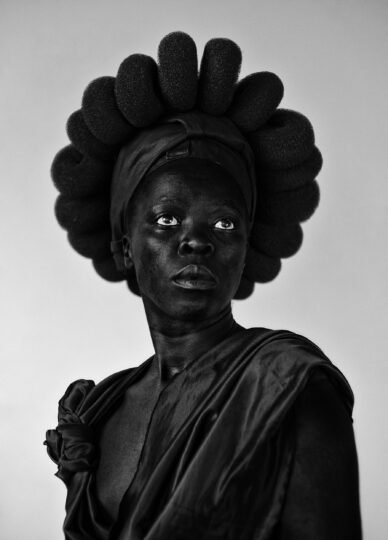14/06/24
Zanele Muholi
Tate Modern, London
6 June 2024 – 26 January 2025
The veteran photographer and activist Joan E Biren (AKA JEB, b1944, Washington DC, US), who has been chronicling the lives of LGBTQ+ people since the 1970s, once said: “Without a visual identity we have no community, no support network, no movement. Making ourselves visible is a political act. Making ourselves visible is a continual process.” And what JEB did for late-20th-century lesbians, Zanele Muholi (b1972, Umlazi, South Africa) is doing for South Africa’s LGBTQ+ community today.

As we journey through the exhibition – not just in this project, but in Muholi’s wider practice – we, as viewers, start to recognise their faces. Each person looks directly at the camera, challenging the viewer to hold their gaze, and these looks are no artistic construct – Muholi is insistent that these individuals are not passive “subjects”, but autonomous and agentive “participants”, involved in a collaboration. As well as visibility, Muholi seeks to give them a voice through the inclusion of personal testimonies. Gaps in the hang denote where participants have died, or where a specific photograph has not yet been taken. The portrait of Muholi’s first participant, Busi Sigasa, is accompanied by a poem Sigasa wrote, entitled Remember Me When I’m Gone, which is painfully poignant, as Sigasa has since died.
Read the full review here